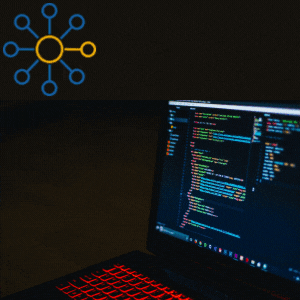ORLANDO — Patience Carter feels pain from the gunshot wounds in her legs. And for that, she feels guilt so strong that she has been trying to process it through poetry.
“I can feel nothing like the other 49 who weren’t so lucky to feel this pain of mine,” Carter said Tuesday, surrounded by the doctors who saved her life, reading a poem about the emotional toll that comes from surviving when others don’t.
For 53 people, this past Sunday started in a popular Orlando nightclub and ended in a hospital room. Forty-nine others at the club ended up in the morgue.
As mourners from Sydney to Moscow remembered the dead with candles and flowers, those who survived were confronted with competing torrents of emotion: elation at being able to wake up in the morning, and a gnawing survivors’ guilt that a weeping Carter described as an almost unbearable burden.
“The guilt of being alive is heavy,” Carter said, reading from a hospital chair wheeled into a news conference at Florida Hospital, just north of downtown Orlando. “It’s like the weight of the ocean’s walls, crushing uncontrolled by levees.”
Across town at Orlando Regional Medical Center, where the majority of victims were treated, a surgeon said the number of fatalities could yet rise. All told, 33 shooting victims remained hospitalized Tuesday, hospital officials said: Six were still critically ill, and five others were in “guarded” condition.
Orlando Regional Medical Center is just half a mile from the scene of the murderous rampage at Pulse, a vibrant and popular gay nightclub. On Tuesday, doctors there recalled patients arriving “by the truckload.” They described people riddled with bullets, gunshot wounds in their chests, abdomens and pelvic areas.
“This was somewhat of a surreal experience,” one doctor said. “We were just given patient after patient after patient.”
For Carter, 20, Saturday night was the start of a Florida vacation with two friends from Philadelphia: Akyra Murray, 18, and Tiara Parker, 20. Looking for fun, they Googled “most popular clubs in Orlando,” and the cold logic of a search engine’s algorithm led them to Pulse.
Parker, an intern at a Fox News TV station in Philly, took to Instagram with a selfie captioned: “Headed to downtown Orlando!!”
A few hours later, the three women lay on a bathroom floor, in a heavy, wet pile of the bleeding and the dead. All three of them had been shot, and Murray was dying.
Carter could see the shooter’s feet as he paced back and forth on the bloody floor just outside the handicapped stall where she and her friends tried to keep quiet. He spoke in a language she could not identify. When his rifle jammed, he killed a couple of people point blank with his handgun. Pop. Pop.
In that moment, Carter said: “I was begging for God to take the soul out of my body because I didn’t want to feel any more pain.”
On Tuesday, barely two days later, with her friend among the dead, Carter described survival as a weight, a gift to be handled warily.
“The guilt of feeling lucky,” she said.
For Jeannette McCoy, the past 36 hours have brought trepidation and uncertainty. McCoy, 37, escaped the club amid a hail of gunfire, stepping over the dead and injured and, once outside, tending to the wounds of others.
She was not injured. After checking on her friends, who all survived, she was able to return to her small ranch house near a strip mall around 6 a.m. Sunday.
But at that point, she found herself alone. And, after all she had seen, McCoy could not stand to be alone.
“I’m not a scared person. I don’t live in fear,” said McCoy, a personal trainer and competitive bodybuilder. “But for me to come home . . . and there’s no one here.”
Her voice trailed off.
On Monday night, McCoy was sheltering in her home, her closest friends and relatives gathered by her side. Her windows were locked. Her curtains were rolled down. A group of muscular men — many friends from the gym where McCoy works and exercises — guarded the door, scouting out potential visitors and making sure McCoy was okay with having them in the house.
McCoy is tough. In an interview in her home, she said she is originally from Long Island and that she doesn’t take any crap. Her body ripples with muscles. But since the shooting, she said she is wary of others and doesn’t feel safe. She is afraid that people around her could erupt in violence at any time.
“I’m so uneasy. I’m looking over my shoulders,” she said. “I saw people walking down the street, and they looked like suspects to me.”
As friends chatted in the kitchen, McCoy retreated to her bedroom to call loved ones and let them know she was okay. She said she has always been a person who protected others. Now she fears for her own safety.
She has a Taser. And she’s planning to get a permit to carry a concealed weapon. The shooting, she said, made her feel as if she has no time to waste.
“I have to protect my home,” she said. “I have to protect my domain.”
For Angel Santiago, the shooting destroyed the sense of security he once felt at Pulse, a joyous place he described as a refuge.
Santiago, 32, was hanging out with friends when the gunman entered the club. The group took shelter in a restroom, but the gunman followed. They smelled the acrid scent of gunpowder as he moved closer.
Santiago said prayers for protection. The gunman opened fire. Santiago was hit in his left foot and his right knee. For hours, he lay on the bathroom floor thinking he was going to die.
On Tuesday, he said he was still processing the fact that he did not.
“I’m just grateful to be alive because after seeing what occurred, I don’t even know how I’m alive today,” he said from his bed at Florida Hospital. His legs were covered with a white sheet, and a blood-stained piece of gauze was affixed to the inside of his elbow on his right arm.
The shooting forever changed his life and the life of his relatives, many of whom stood at his side. His brother cried as Santiago spoke.
To Santiago and many others in Orlando, Pulse was more than a club. It was a place where Santiago and other gay men and women were permitted to unabashedly be themselves, without judgment or fear.
“For me, being a gay man, going to a club like Pulse, it’s kind of like a safe haven. Because you can’t go to just any old bar and be who you are because there’s hate everywhere,” Santiago said. “When you go to a place like Pulse, it’s not so you can be promiscuous or anything like that. It’s because this is your safe zone.”
Santiago said it will be difficult to feel safe anywhere now. “I can’t say what’s going to happen,” he said. But “whether or not I’m looking forward to going to another club? No. Not at least for now.”
In the meantime, Santiago said he is viewing life through a different lens.
Coming face to face with death, he said, “makes you think twice about what you’re going to do with your life.”
Mark Berman in Washington contributed to this report.
https://www.washingtonpost.com/politics/the-guilt-of-being-alive-is-heavy-survivor-of-nightclub-shooting-says/2016/06/14/ac366268-3251-11e6-8ff7-7b6c1998b7a0_story.html?hpid=hp_hp-top-table-main_flasurvivors-9pm%3Ahomepage%2Fstory



